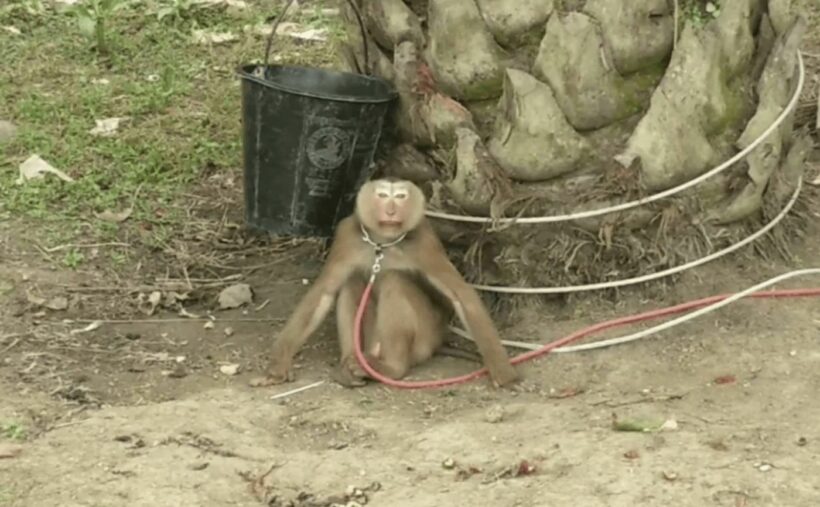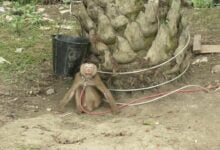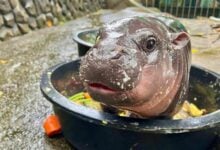Chaokoh deny any monkey business amid PETA investigation

Thai coconut-milk producer Chaokoh say there is no monkey business going on in the production of their products, in response to a PETA investigation.
The US-based animal rights non-profit organisation conducted an investigation in 2019 singling out Chaokoh for the abuse of young monkeys in Thailand. PETA’s report alleged monkeys are “chained, abused, and forced to climb trees to pick coconuts that are used to make coconut milk, meat, flour, oil, and other products.”
As a consequence of PETA’s findings, the US is considering a ban on all Chaokoh products. PETA’s latest campaign to get retailers to pull Chaokoh products from their shelves has now accumulated more than 95,000 supporters.
US-based superstore franchise, Walmart, is now the latest major retailer to drop the coconut milk brand after allegations of forced monkey labor surfaced.
But PETA Executive Vice President Tracy Reiman told USA Today that the monkeys are mistreated.
“The coconut trade uses social monkeys as chained-up coconut-picking machines, depriving them of any opportunity to eat, play, or spend time with their families.”
But the Thai coconut product manufacturer, based in Nakhon Pathom, in central Thailand, hit back saying PETA’s campaign is not only false, and racist – suggesting the rest of the world bans Chaokoh products is threatening livelihoods in Thailand. A worldwide ban would force many farms into bankruptcy and force hundreds of workers into poverty and destitution.
An independent investigator, and animal rights groups in Thailand, have all conducted their own internal investigations which found no evidence of the Chaokoh business using monkeys as slave labour.
Chaokoh spokesperson, Teetiphun Theppadungporn, says the PETA investigation had serious flaws in its methodology and was carried out by a lone investigation team which was unfamiliar with the country.
“We’ve asked PETA several times where they conducted the investigation so that we can end the practice at the source, but they have refused to talk to us or to cooperate. This makes it hard for us to check whether the claim is true.”
Teetiphun says Chaokoh and all of the farms that supply coconuts have signed a memorandum of understanding to guarantee that none of the coconuts were picked by monkeys.
The company is also independently audited by Bureau Veritas Certification, which found that there were no monkeys picking coconuts at a random inspection of 64 farms in 2020.
A local fixer, who wants to remain anonymous, says she was approached by PETA to help conduct the job. She revealed they flew 2 “white” people into the country, hired a local fixer and went around asking about monkeys picking coconuts.
“That means there is serious problems in their methodology, little research, and a whole lot of outrage.”
She added the investigators visited tourist destinations where monkey picking is still carried out for the benefit of tourists. For its part, Chaokoh says it contracted a company to conduct a monkey-free coconut “due diligence assessment” 2 years ago.
“Does the practice still exist? Yes, it does but there’s less than 100 monkeys nationwide that are still used in a traditional way and it’s fading fast. The report was bullshit,” according to the Thai Enquirer article.
To many Thai observers, PETA’s actions is just another chapter in “orientalism”.
SOURCE: mbtMAG | Thai Enquirer | USA Today
Latest Thailand News
Follow The Thaiger on Google News:


























